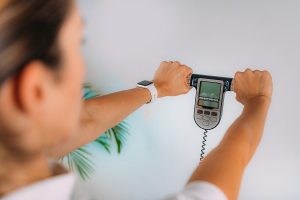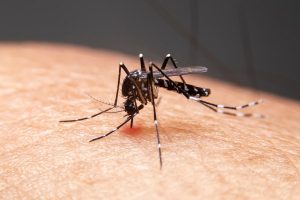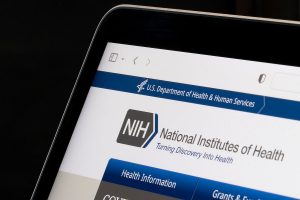Johnson & Johnson announced Thursday that its coronavirus vaccine is effective against the highly contagious Delta variant that brought India to its knees this past spring.
The finding will no doubt reassure the 11 million Americans who have gotten the J&J shot, as the company also noted the protection lasted eight months after inoculation.
Although there was a slight drop in potency against the Delta variant, data from two studies show the J&J vaccine was more effective against the Delta variant than the Beta variant that first surfaced in Africa. Even better, antibodies stimulated by the J&J vaccine grew in strength over time, the company added.
Both studies, which have been submitted for online publication on the preprint server bioRxiv, were small, but the company said it released the results early because of high public interest.
“Today’s newly announced studies reinforce the ability of the Johnson & Johnson COVID-19 vaccine to help protect the health of people globally,” Dr. Paul Stoffels, vice chairman of the executive committee and chief scientific officer at Johnson & Johnson, said in a company news release. “We believe that our vaccine offers durable protection against COVID-19 and elicits neutralizing activity against the Delta variant. This adds to the robust body of clinical data supporting our single-shot vaccine’s ability to protect against multiple variants of concern.”
Still, the potential threat that the Delta variant poses even has people who are immunized worrying about whether they are protected.
In the United States, the variant now accounts for one in four new infections, The New York Times reported. Public health officials have said the vaccines authorized in the United States work against all existing variants, but the data are mostly based on studies of the Pfizer and Moderna mRNA vaccines.
And the U.S. Centers for Disease Control and Prevention’s guidance that vaccinated people could forgo masks indoors in many situations was based mostly on data for Pfizer and Moderna’s mRNA vaccines, the Times said.
Some people who were immunized with the J&J vaccine complained that they felt cheated by experts who had said the vaccines were equally good, the Times reported.
But other experts noted that the clinical trials have made it clear that the efficacy of the J&J vaccine is lower than the mRNA vaccines.
“Seventy-two percent is of course lower than 95 or 94 percent,” Florian Krammer, an immunologist at the Icahn School of Medicine at Mount Sinai in New York City, told the Times.
Data on the J&J vaccine’s potency has also been slow to arrive, because it was rolled out later and because of the pause on its use amid concerns about rare blood clots.
CDC head says masks still not need for vaccinated Americans
The head of the CDC on Wednesday stood by the agency’s latest mask guidance, saying that fully vaccinated Americans need not wear face coverings as the pandemic ebbs.
Even so, there are instances where local authorities might set more stringent measures to protect the unvaccinated against the highly contagious Delta variant, such as Los Angeles did this week, CDC Director Dr. Rochelle Walensky noted.
“We have always said that this virus is an opportunist, and in areas where we still have rates of low vaccination, that is where the virus is likely to take hold. We are still seeing upticks of cases in areas of low vaccination, and in that situation we are suggesting that policies be made at the local level,” Walensky said on “Good Morning America.”
“Those masking policies are not to protect the vaccinated — they are to protect the unvaccinated,” Walensky added.
Dr. Vivek Murthy, the U.S. surgeon general, concurred on CNN Wednesday, saying he saw nothing wrong with local authorities imposing new restrictions if needed.
“If I was in a community that had a low vaccination rate, as a number of our communities do around the country, if I was seeing a rise in the Delta variant, I think it’s perfectly reasonable to think about different approaches we could take to limit spread to try to get ahead of it,” Murthy said.
Their comments came after the World Health Organization (WHO) reiterated long-standing guidance this week that everyone, vaccinated or not, wear masks following a global surge in infections triggered by the highly contagious Delta variant.
“The WHO really does have to make recommendations for an entire world,” and many countries have far less access to vaccines than the United States, Walensky explained.
While the Delta variant now accounts for about one-quarter of infections in the United States, according to CDC estimates, cases across the country have plummeted in recent months, along with hospitalizations and deaths.
But the average rate of U.S. vaccinations per day has also decreased by about 75% from the peak reported in mid-April, the Times reported. As of Tuesday, about 46% of people of all ages and about 57% of adults are fully vaccinated, according to federal data.
More information
The U.S. Centers for Disease Control and Prevention has more on COVID-19 vaccinations.
SOURCES: The New York Times; CNN; Johnson & Johnson, news release, July 1, 2021
Source: HealthDay
Copyright © 2025 HealthDay. All rights reserved.

















